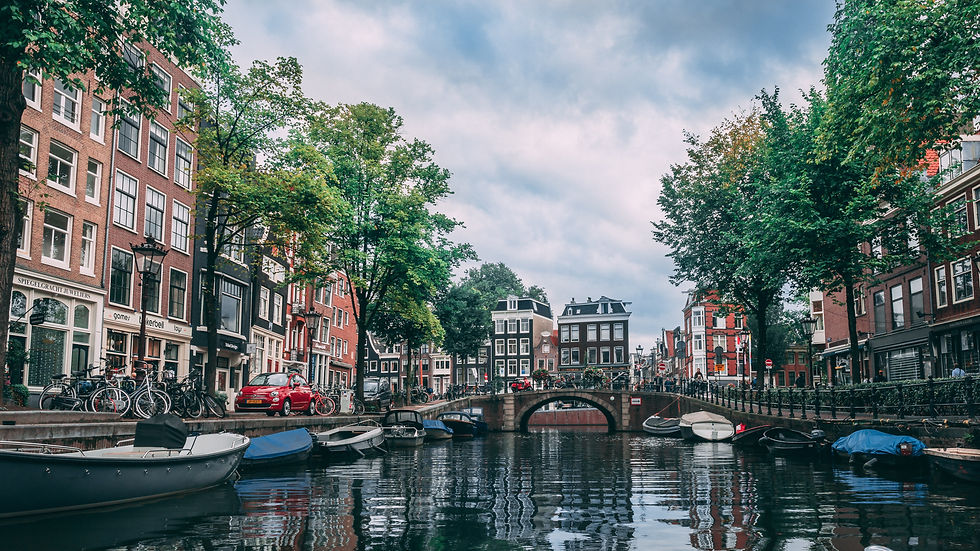A Comparative Analysis of Rental Building Maintenance: Netherlands vs Philippines
- bedandgoinc
- 2023年12月21日
- 読了時間: 3分
Date: 12/21/2023
Maintaining rental buildings is a critical aspect of property management, ensuring the safety, comfort, and overall satisfaction of tenants. While the principles of maintenance remain constant, the execution can vary significantly across different countries. In this blog post, we will delve into the differences in maintenance practices at rental buildings between the Netherlands and the Philippines, two countries with distinct cultural, economic, and social contexts.

Section 1: Cultural Influences on Maintenance Practices
1.1 The Dutch Emphasis on Preventive Maintenance:
In the Netherlands, a culture of meticulous planning and preventive maintenance prevails. Dutch property managers prioritize regular inspections and scheduled upkeep to identify and address issues before they escalate. This proactive approach contributes to the longevity of rental properties and enhances the overall quality of living for tenants.
1.2 Filipino Adaptive Maintenance Culture:
In the Philippines, maintenance practices are often characterized by adaptability and resourcefulness. Due to economic constraints and a tropical climate, property managers may adopt a more reactive approach to maintenance. Repairs are often conducted promptly when issues arise, reflecting a pragmatic response to the challenges posed by the local environment.
Section 2: Regulatory Framework and Standards
2.1 Stringent Regulations in the Netherlands:
The Dutch rental housing market is highly regulated, with strict standards and codes governing the maintenance of residential properties. These regulations ensure that landlords adhere to specified standards, covering aspects such as structural integrity, safety, and energy efficiency. Non-compliance can result in penalties, creating a strong incentive for landlords to maintain their properties at high standards.
2.2 Developing Standards in the Philippines:
While the Philippines has regulations in place, the enforcement of maintenance standards is often a work in progress. Building codes may exist, but implementation and monitoring can vary across regions. As the country continues to develop, there is a growing emphasis on strengthening regulatory frameworks to ensure the well-being of tenants and the longevity of rental properties.
Section 3: Climate and Environmental Considerations

3.1 Netherlands: Battling the Elements:
The Dutch climate, characterized by cold winters and mild summers, necessitates maintenance practices that address issues such as insulation, heating systems, and drainage. Property managers focus on protecting buildings from the impact of harsh weather conditions, with regular checks on roofs, windows, and foundations.
3.2 Philippines: Tropical Challenges:
In the Philippines, the tropical climate poses unique challenges, including high humidity, intense rainfall, and the constant threat of typhoons. Maintenance efforts are directed towards preventing water damage, mold growth, and ensuring that buildings can withstand the impact of tropical storms. Regular inspections of roofs, gutters, and drainage systems are crucial in this context.
Section 4: Tenant Expectations and Cultural Considerations
4.1 Dutch Tenant Expectations:
In the Netherlands, tenants often have high expectations regarding the quality of their living spaces. Property managers are expected to respond promptly to maintenance requests, and the emphasis on preventive maintenance contributes to tenant satisfaction. Clear communication between landlords and tenants is a cornerstone of the Dutch rental experience.
4.2 Filipino Community Dynamics:
In the Philippines, a strong sense of community often influences maintenance practices. Property managers may engage with the community to address common issues, and a collaborative approach is taken towards building upkeep. This sense of collective responsibility can positively impact the overall maintenance and cleanliness of rental properties.
Section 5: Economic Factors and Budgeting

5.1 Robust Economy in the Netherlands:
The strong and stable economy in the Netherlands allows for significant investments in property maintenance. Property owners and managers allocate sufficient budgets for regular inspections, repairs, and renovations. This financial stability contributes to the overall resilience of rental buildings.
5.2 Economic Constraints in the Philippines:
Economic factors play a crucial role in shaping maintenance practices in the Philippines. Limited budgets may restrict the frequency of preventive maintenance, and property managers may prioritize essential repairs over long-term investments. This dynamic reflects the need for adaptive solutions in a context where financial resources may be constrained.
Conclusion:
In conclusion, the maintenance of rental buildings is a multifaceted task influenced by cultural, regulatory, climatic, and economic factors. The Netherlands and the Philippines, with their unique contexts, showcase the diversity in approaches to building upkeep. While the Dutch prioritize preventive measures and adhere to stringent regulations, the Philippines emphasizes adaptability and community engagement. Understanding these differences is essential for property managers and stakeholders in both countries, contributing to the ongoing improvement of rental housing standards worldwide.








Comentarios